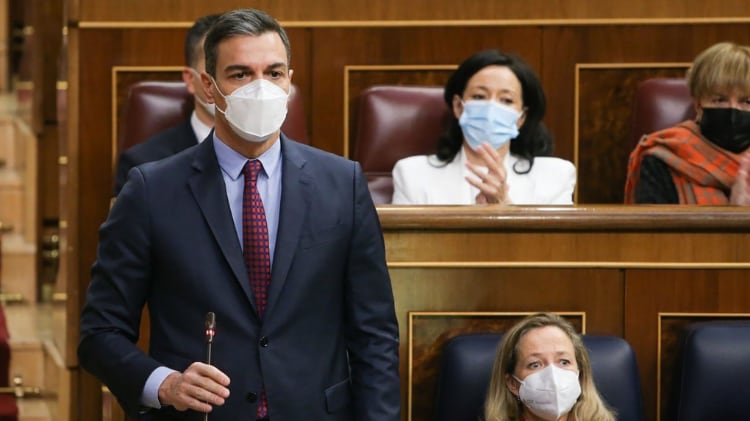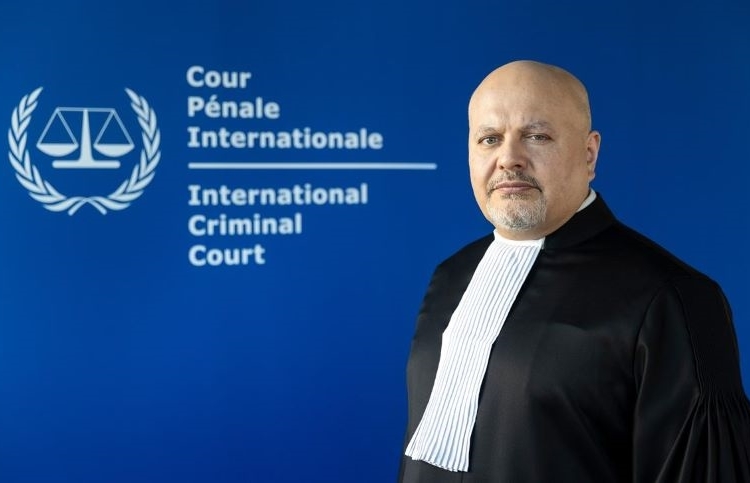The Diplomat
Pedro Sánchez’s government partners and the majority of his parliamentary backers yesterday rejected the chief executive’s stated intention to increase defence budget spending to 2% of GDP.
In contrast to what happened with the government’s decision to send arms to Ukraine, on this occasion the different tendencies of Unidas Podemos were against the announcement made the night before by Sánchez on La Sexta when he expressed the desire to comply with the percentage demanded by NATO.
Not even the second vice-president, Yolanda Díaz, who distanced herself from the rejection by ministers Ione Belarra and Irene Montero of sending arms to Ukraine, supports the president’s position, and joins her coalition colleagues who understand that the social response to the crisis caused by the war must take priority. However, they also made it clear that they respect the position of their government partner.
Thus, the co-spokesman for the purple party, Pablo Fernández, indicated that there are “more pressing” needs than increasing the Defence budget, although he avoided describing the position of the head of the Executive as a mistake.
The parliamentary spokesman for the confederal group, Pablo Echenique, made it clear that they are not in favour of increasing the arms budget, given that his political group “defends peace”.
He also said that he did not “think it is appropriate” that Spain should spend more than twice as much on the military budget as it can spend on science. In this way, he insisted that increasing the military budget is not in line with what Spain is, and that there are other priorities, such as increasing investment in health, dependency, education, reforming the electricity market in the face of a system that he describes as a “swindle” and deploying a new social shield to protect citizens.
Meanwhile, sources from Unidas Podemos in the Executive, led by Yolanda Díaz, were cautious and explained to Europa Press that they do not share, but respect, the position of the majority partner in advancing its plans to increase military investment.
In this line, they admitted that the area of Defence is an area that falls to the Socialists and they understand that, within the coalition, there are different sensitivities on this matter, in a context as complex as the war in Ukraine.
However, despite the fact that the shared position is to dissociate itself from this initiative, the aforementioned sources from the confederal space in the government assured that this does not represent a conflict in the coalition, given that there is still a long time to go before the next general budget is discussed.
Along these lines, Echenique also ruled out that this issue would now generate a clash with his coalition partner, whom they are going to try to “convince” that increasing military spending in this context is a “bad idea” in the current socio-economic crisis.
The spokesperson for En Comú Podem in Congress, Aina Vidal, was more forceful, expressing her opposition to increasing military spending in the face of the war in Ukraine, saying that it is a “mistake” to follow Germany’s path due to the risk of “arms escalation” in Europe.
She added that Spain should be a “different voice” at the EU level, which is committed “not to a militarised Europe” but to an increase in “social spending”, not arms spending, and to diplomatic channels.
Questioned on whether the confederal space will reject an increase in defence spending in the next General State Budget, Vidal replied that they do not face the next public accounts with “red lines”, although she reiterated that the strategy of the coalition Executive must be “different and they do not support an increase in military spending”.
As for the parties that give parliamentary support to the government, rejection was also evident. The spokesman for ERC, Gabriel Rufián, pointed out that he does not think that the 20 billion euros already earmarked for defence are “few”, and regretted that, for example, an increase in spending on health has not been announced.
Íñigo Errejón, leader of Más País, declared: “It is more urgent to invest in psychologists in public health, in the Minimum Vital Income or in people not paying a kidney to fill up their petrol tank…. There are more pressing priorities than the increase in defence spending”.
And Mertxe Aizpurua (Bildu) warned Sánchez of the “very dangerous” consequences that increasing spending “in the future” could have, leaving aside other types of social items in the Budget that she believes are more important for citizens.







